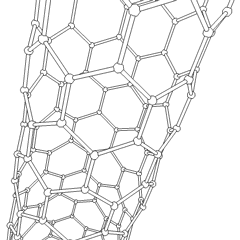Carbon Nanotubes Could Put Supercomputers in Your Pocket

A 3D chip stack that utilises carbon nanotubes could theoretically power supercomputers small enough to fit in a pocket, according to researchers.
Philip Wong, an electrical engineering professor at Stanford University, claims that the chip stack would reduce the power needs of supercomputer systems to such an extent that a computer as powerful as IBM's Watson could one day come in a pocket-sized form.
The IBM Watson supercomputer gained fame in 2011 when it beat human contestants on the US gameshow Jeopardy.
"This design requires new, highly-efficient heat spreaders," Wong said at the recent Semicon West conference. "The thermal aspect is critically important.
"The resulting design could provide a thousand-fold power reduction for the IBM system that consumed 175kW power to beat human contestants in the Jeopardy gameshow."
Wong admits that there are significant challenges to be met before such a system could be practically implemented.
"The material is not suitable for the high-temperature doping processes used in today's chip fabs," Wong said. "Researchers still need to improve the purity of the material they grow. And, like all transistor materials, it faces challenges when contacts scale to increasingly small sizes."
Moore's law stunted by silicon

The advancement of technology has often been summarised by Moore's law, which states that the number of transistors that it is possible to fit onto a chip doubles every two years.
This rule has held fast since the dawn of computers, however in the last few years it has begun to collapse.
The reason behind this is the limitations of silicon as a semiconductor; it is not possible to reliably scale down chips below 10 nanometres.
It is widely believed that carbon nanotubes could hold the key to overcoming this scaling issue and re-establishing Moore's law.
One of those betting on carbon nanotubes is IBM. Earlier this month the firm announced a new $3 billion (£1.8 bn) project that aims to build commercial transistors using carbon nanotubes by 2020.
© Copyright IBTimes 2025. All rights reserved.






















